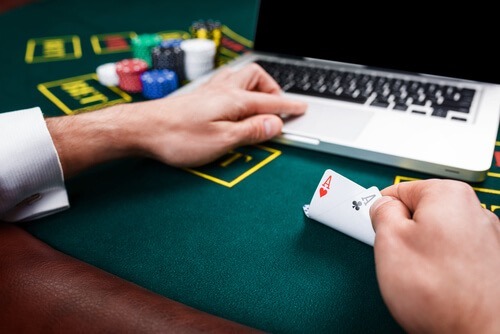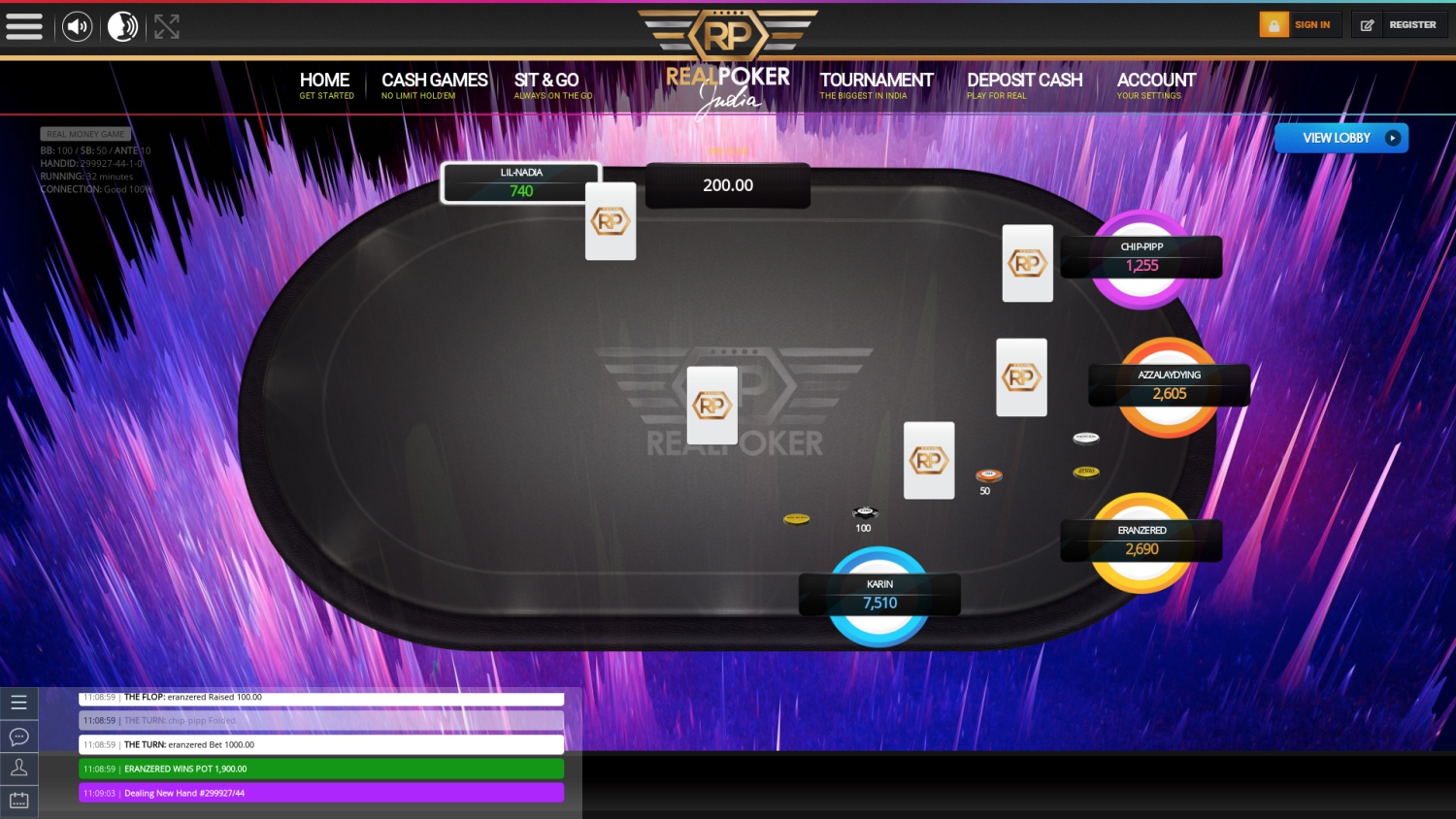Poker Chasing Losses
- You just keep chasing the loses. This is why it’s important to have self-control when it comes to big wins and big losses – but we’ll get to that in a bit. The fact remains, losing your bankroll happens, so if you’re here because it’s just happened to you, take heart: here’s what you can do to regroup, recover and re-engage.
- Now develop the discipline to forget about chasing losses. Your bankroll will notice the difference. May all your wins be swift and large and all your losses slow and small. Jerry “Stickman” is an expert in craps, blackjack and video poker and advantage slot machine play. He is the author of 'Everything Casino Poker.'
- The dog is a chaser – a loser. Playing poker, there are lots of chasers; and they usually lose most, if not all, of their chips before the evening is over, no matter the game or the stakes. Even more so if there is a cost to play, as is the case in cardrooms and casinos all over the world. What is a “chaser” in hold’em poker?
I was on a pretty big heater (+373, +3781, +852) and this was recently followed by some big losses (-760, -1840). I'm particularly concerned because of how hard I chased in the two losses. Like a gambler ‘chasing losses’ at a poker table, people stuck in the sunk cost trap will pretend that they have a winning hand. Nick Leeson, the infamous ‘Rogue Trader’ who caused the.
The twin evils of gambling are negative expected values and chasing losses. Negative expected values may be casino odds, rakes or commissions. Another way of describing chasing losses is “I will get it back ” syndrome. Gamblers are not just losers. They are big losers. The majority suffers from the human inborn instinct of “chasing lossses” . In other words, you want to get it back.
If you compare casino odds with the interest you earn from the bank saving account, you will realize how powerful casino odds are on the players.
Let’s say the casino odds is 3%. Saving accounts yield or return 3% in one year. Casino yields 3% in ONE bet. Casino make from the gambler in one bet what you make in a year from your saving account. Shocking! Isn’t it?
And if you chase losses, you will invariably lose out of proportion to your modest wins. For example, you may win 1k, 1k, 1k over the first three bets, then lose 1k, 2k, 4k over the next three bets. So, it is not about winning or losing. It is more about how fast you lose.
A fellow gambler posted in his blog that for every 1.3 seconds there is a “new” gambling system released for craps, sports betting, poker, roulette, baccarat and so on. And there are easily thousands of worthless gambling systems out there. Only a few gambling systems have merits. You must learn how to review or evaluate whenever a gambling systems is presented to you.
I have covered in my earlier posts in great details the pros and cons of gambling systems. Gambling systems are vulnerable to the full devastating effects of these twin evils of negative expected values and chasing losses.
If you are new to gambling, or if you are a recreational player, you need to learn how to tolerate or accept losses and not to chase losses. This is not easy but it becomes easier with practice and time. If you are an experieced professional, then you may counter the evils of chasing losses by learning strategies of smart chasing of losses. I have described several methods of smart chasing of losses such as HP Johnson’s system, Arthur Irwin Bruce Midas Touch System, modified Monte Carlo system, SF Roulan Fast Roulan and 1221 system as well as Frank Barstow series of systems.
(The modified Monte Carlo system is the system I used to win 160,000 over ten months).

The goal is to keep stakes low, such that your average wins are always higher than your average losses . As a reminder this method works short run only. For this method to work, you must make sure that short term does not become long term. Short term is defined by process, not time. You must learn how to review gambling systems. It is a very important skill in gambling.
Test yourself by buying or borrowing a book on gambling systems and see whether you are able to apply these principles to critically review the author’s ideas, opinions and viewpoints.
Similarly, you counter negative expectations games in two ways.
1. Define your game plan. It must be finite in terms of number of bets and time. Because within this context, it is possible to use strategies such that your average win is higher than your average loss.
2. Train yourself to spot situations as well as choosing games with positive expected values. In other words, you play only games or situations with positive expectations. Positive expectation is a very reliable and stable platform. Professional gamblers rely on positive expected value systems to make a living.
GAMBLINGHELP provide free gambling courses to help gamblers in recreational gambling, professional gambling, quit gambling.
Amazon.com Widgets
Social Bookmarking
Hopefully you’ve already absorbed a wealth of knowledge from our poker lessons. There’s still much to learn – in fact you’ll never stop learning about poker. Before moving onto the next stage of your poker development let’s review some of the typical mistakes that beginners make when playing Texas hold’em.
Although one or two of the mistakes we’re going to mention are relevant to no-limit hold’em, the majority are applicable to all forms of hold’em, in addition to other poker formats. Please use this lesson as a guide, so that you don’t fall into the same traps.
The Top 10 Typical Beginner Mistakes
In no particular order, here are our top ten typical beginner mistakes:
#1 – Playing Too Many Hands
One of the main mistakes new players make is feeling like they have to play every hand. They may become impatient, feel left out of the action or don’t want to look weak in front of their friends. It could also be that they just don’t know any better. Any Jack, Queen, King or Ace looks good if you don’t understand good starting hand selection.
The problem with playing too many hands is that you are actually only going to hit the flop a small percentage of the time and even if you do hit the flop; it’s hard to know if your hand is the best. Until you understand how to play beyond the cards, you will mostly be playing based on what you are dealt and if you are involved in too many pots, the next thing you know all of your chips will be gone.
#2 – Playing Scared
While some beginners play with reckless abandon, many play with fear. Having not played many hands, new poker players are often afraid to make a mistake or they simply are afraid to lose. Because of this they will fold until they know they have an unbeatable hand. Fear can also manifest itself into paranoia, where a player assumes that anyone betting aggressively must have a monster hand (often referred to as “monsters under the bed”) and they will fold all but the best possible hands. The only way to get over this is to log in time at the poker tables and practice trusting your instincts.
#3 – Getting Committed to a Hand
Gambling Chasing Losses
Because of the competitive nature of poker, beginners think that poker is like other sports where “giving up” is considered a bad thing. While you shouldn’t play passively, poker is not like other sports and it is often the correct play to fold. When you first start playing poker, it’s easy to get emotionally attached to a hand. This might be a pre-flop hand like a pocket pair or making a pair on the flop. You stay in a hand because you don’t want to get bluffed out of a pot or look weak – or because the competitor in you says there is no way to win if you fold. Unfortunately, by continuously calling bets you never really know where you stand in the hand until it’s too late.
#4 – Improper Bet Sizes
This one is primarily related to no limit and pot limit games. Understanding how to correctly size your bets in these games to manipulate the action comes with experience of playing poker. However, such common betting mistakes that beginners tend to make are easy to fix. New players often raise or bet at the extremes – meaning too little or too much. Some common examples of this are raising the minimum pre-flop in no limit games when there are several players who have already entered the pot or raising 5x-6x the size of the blinds when you are first to enter a hand.
Video Poker Chasing Losses
Miss-sizing of bets also occurs after the flop. Beginners will bet the minimum with big hands (two pair or a set) when there are lots of players in the hand allowing them to draw cheaply to a better hand. Conversely, they may also over bet to “protect” their hand. In most cases, these are both incorrect. Ideally, in poker you want to bet an amount that maximizes how much you can win and minimizes how much you can lose.

#5 – Chasing

Similar to #3, a beginner will often stay in a hand hoping other cards will appear that could improve their hand. This could include straight and flush draws, but also calling bets in order to pair an Ace or a second card for two pair. Calling on a draw isn’t necessarily a wrong, but the mistake that beginners often make is chase getting improper pot odds to do so. While you might hit the card(s) you need in one particular hand, if you are chasing without the right odds you will lose money in the long run.
#6 – Overvaluing Marginal Hands
A very common mistake among beginners is playing hands that look good on the surface, but in reality hold little value or are easily dominated by other hands. In hold’em, examples include suited cards or face cards with bad kickers (K3, Q5, etc.). Additionally, this includes high hand combinations like QT, KJ or A9. While these hands are not unplayable, knowing how to play them comes with experience. The challenge with these face cards is that there aren’t many flops that you can be confident that you have the best hand. Even if you do make a pair, you can easily be out-kicked or beaten by a higher pocket pair.
#7 – Letting Emotions Affect Your Play
Whether it is from a bad day at work or a bad beat at the table, emotions can affect how you make decisions. This can result in unprofitable poker actions like chasing losses, making desperate moves or allowing your ego to take over. Beginners will often make rash, emotional decisions that can act like blinders, preventing them from taking in all the information they need to make a smart decision. Stuff happens. So if you feel like you are starting to make emotional decisions in a poker game, just take a step back and reset your mind.
#8 – Playing Out of Position
There are many other factors that weigh into a poker decision beyond just the cards. Your position in relation to the order in which the action occur is one of them. Being able to act last in a hand allows you to see how everyone else is going to act before making your decision. This is a very powerful concept. The mistake beginner poker players make is entering a pot or calling a raise out of position without a plan. They get lost in the hand because they don’t have enough information about where they stand.
#9 – Bluffing Too Much
Some players who are new to the game think poker is all about bluffing. While it is satisfying to bluff someone out of a pot, you should develop an optimal percentage of bluffing in order to not become predictable. For a bluff to work, your opponents need to think you have a real poker hand. If you are always bluffing, your bluffs will not be believable and people will start to look you up. Another component to bluffing is that your bets need to tell a believable story and you should be representing a particular hand instead of just random aggression.
#10 – Playing Above Your Bankroll

Even if you are only playing poker recreationally, it is still important to manage a poker bankroll. Most beginners do not understand the role that variance plays in poker. You can be playing great, but still go through a long losing streak. If you don’t manage your poker money properly and play within your limits, you will burn through your money. Even if you develop the skills to play at a higher level, if you don’t have the bankroll to withstand the inevitable variance that comes with poker, you will go broke.
Mistakes Are an Opportunity to Learn
Mistakes at the poker table can prove costly but as a beginner you should see them as an opportunity to learn. Don’t worry if you’re guilty of making any of the mistakes listed in this lesson. Everyone who plays poker makes mistakes all the time. Skilled poker players just make fewer mistakes. Hopefully now you know what needs improving and what parts of your game you should consider working on.
Related Lessons
By Donovan Panone
Donovan started playing poker in 2004 and is an experienced tournament and cash game player who has a passion for teaching and helping others improve their game.